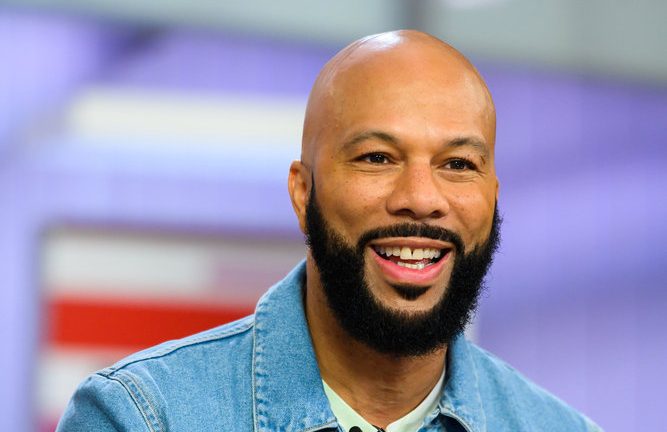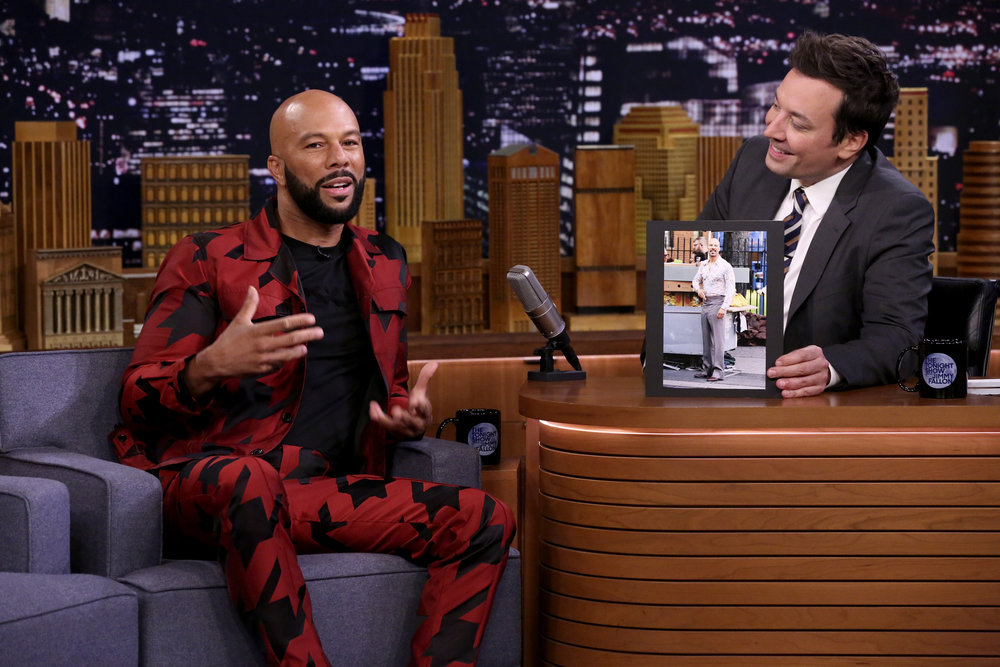
Reports of Chicago’s high crime rates and gang violence have been the center of media attention on the city creating a heightened fear of areas like the South Side of Chicago. But rapper/actor/activist Common is hoping people will see another side to his hometown on “The Chi,” a Showtime series he serves as executive producer.
Common may be known as an Oscar-winning artist and talented actor, but he’s also known for something else–he’s heavily involved in giving back to his Chicago community and talked to The Voluntourist about his efforts in helping the youth of his city.

THE TONIGHT SHOW STARRING JIMMY FALLON -- Episode 0934 -- Pictured: (l-r) Musician Common during an interview with host Jimmy Fallon on September 28, 2018 -- (Photo by: Andrew Lipovsky/NBC)[/caption]
The Voluntourist: Is your involvement in “The Chi” because there has been a lot of talk about the crime statistics in Chicago and is this so you can show the humanity, the love, the light, of South Side community?
Common: Yes, my thing has always been about showing humanity, whether it’s in a character I choose or a song I write. I want to show that humanity whether I am talking about love or whether I’m talking about struggle. I wanted to be a part of this show. I wanted to produce this show because I felt that it was really showing black life in a way that humanizes us. It can connect with anybody. When I tell you a story about me and my mother just sitting down and talking and having fun and joking, you don’t have to be a certain color to relate to that story. I thought Lena [Waithe] was able to tap into that human connection and telling it for the people in Chicago in a way that people will understand that Chicago is not all bad the way we see these documentaries depicted. And not even just Chicago, I don’t want America to look at black life and just say, ‘well they’ve got guns and they’re just thugs.’ We’ve got to go deeper than that and get a bit more compassionate towards each other. I think this story allows the compassion to come about in a natural way. It is not like we are preaching. This isn’t a documentary to say Chicago is bad or we need help from this. It’s just life and this is how we evolve in life and this is how we love and laugh, this is how we pray, this how we go for a job, this is how we cook, and joke, and get scared to talk to a girl. I think Lena was able to tap into all the dynamics of us as black people and black life in Chicago in a way that humanizes and I believe that, universally, people can appreciate it. That’s what made me want to be a part of it. People are not just going to say, ‘oh I want to know about black life’. No, you want to watch a show that you’re interested in, that you’re invested in the characters, and its poetic, and what they are doing and it’s poetically written with excellence. I feel when I read that script, I was like “this is it. I was like, “thank you God”, this is something I want to be a part of.
The Voluntourist: Does this feel like your most personal acting project to date?
Common: Selma was really personal. The King has been a hero of mine and to learn about the women and men of that time was really significant to me. But this is the core of who I am and what I want to get out there. It is told in a way where, with all these great talented people, and it’s not about me. I get to be a supporter, I’m the doctor helping to deliver the baby. It’s not me trying to be in the forefront. It’s joyful for that reason too and makes me proud to see people from my city, Chicago, working as actors and on the crew. It’s a different type of thing that I didn’t know I would get out of producing, like giving people opportunities. That is in my core too, so to go back home and give opportunities to people. I didn’t even realize so many talented actors and lighting directors and people are in my city. To be able to go back and do that is a joy.
The Voluntourist: Speaking of giving opportunities, can you talk about another way that you give back to your community?
Common: I have a foundation called Common Ground Foundation where we take our youth and we have programs that run every month and it develops them from academic levels, from health awareness, social impact, technology. It’s a mentorship program where we take our kids to camp so they can do yoga and go on trust walks together. We have open sessions where young men get to talk with men about what’s going on in their lives and young women can talk to women. No cell phones around and it is just bonding. These programs we run for a month really enhances and gives them mentorship. We have 100% graduation rate. I’m watching some of the kids out there now in college become freshman class president. For me, I come from a place where any time I see somebody in need, I want to be able to give and I really want to give to our young people to create opportunities, so that they can go out and change, so that they can be the next Lena Waithe, so they can be the architects. I just want to be able to do that and that’s what we are doing with Common Ground. We also work in some criminal justice reform.
The Voluntourist: On the storytelling perspective, how has your work with Selma and this show, affected your process in creating music and touring?
Common: I feel more duty to be a voice for other people. After being a part of Selma, it was like “wait, I’ve been given a bigger platform.” I’m sitting here meeting with Howard Schultz from Starbucks. I’m sitting here getting to go to Oprah’s events. I need to represent hip-hop well. I need to be a voice for the people, be more informed. It really actually made me pay more attention to the political stratosphere, to be honest. It gave me more responsibility, and duty, and purpose.
The Voluntourist: Did you start your foundation after Selma?
Common: No, we rebooted it in 2007. It’s been going. Also, look out for Imagine Justice because that is our criminal justice reform. We’ve toured five prisons in California. We help to get these bills passed so juveniles won’t be sentenced to life without parole anymore in California; SB294, SB394, SB395. We are also working on making sure they are working on bill reform, so look out for Imagine Justice.
